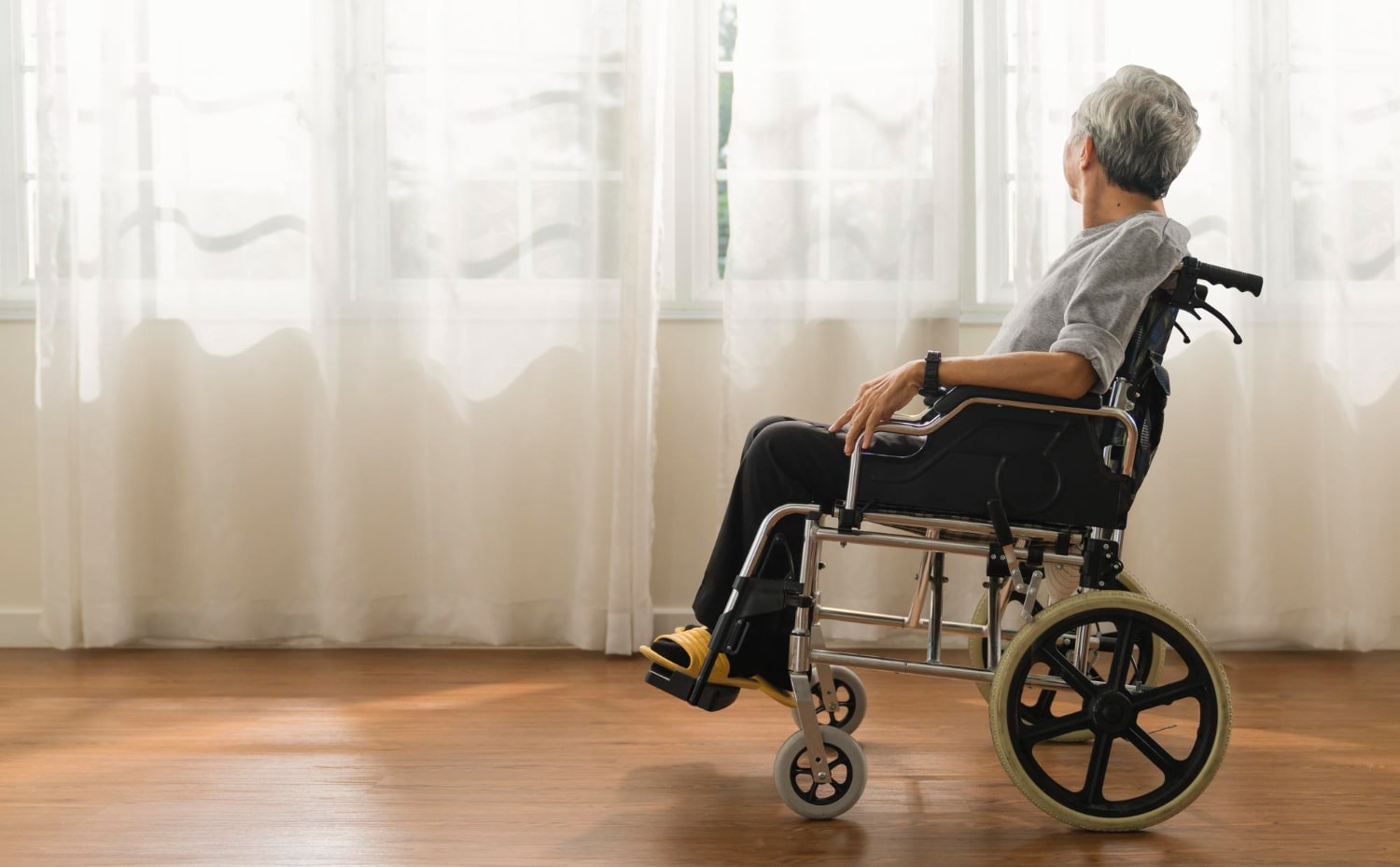
20 Mar Can a Stroke Lead to Dementia? What You Need to Know
Can a Stroke Lead to Dementia? What You Need to Know
By Island Hospital | Mar 20, 2024 3:30:00 PM
Many people worry about the link between stroke and dementia, a concern that’s not unfounded. Vascular dementia ranks as the second most prevalent form of this condition after Alzheimer’s disease.
Our article breaks down how strokes can lead to or worsen dementia, offering insights into prevention and management strategies. Let’s discover crucial information on this topic.
Key Takeaways
- Strokes cut off blood supply to the brain, damaging cells and possibly leading to dementia. Vascular dementia is common after a stroke due to this damage.
- About 1 in 5 people may develop dementia within a year of having a stroke, making it vital for those with heart issues like arrhythmias or high blood pressure to monitor their health closely.
- There aren’t specific drugs for post-stroke dementia, but medications for Alzheimer’s might help with symptoms. Key treatments also include preventing more strokes, therapy sessions, and supporting daily activities.
- To lower the risk of a stroke when you have heart arrhythmia, it’s important to use anticoagulants, control your blood pressure and cholesterol levels, exercise regularly, eat healthily, limit alcohol intake, quit smoking and get regular health checks.
- If you see signs of a stroke or worsening dementia like sudden confusion or trouble speaking, seek medical help immediately as early action can significantly impact outcomes.
Understanding Stroke and Dementia
A stroke happens when the blood supply to part of your brain is cut off. This can damage brain cells and affect how you think, feel, and move.
Some strokes are caused by a clot blocking a blood vessel; others happen when a blood vessel bursts.
Both types can lead to changes in the brain that might cause dementia.
Dementia after a stroke is quite common. About 18.4% of people experience it within one year of having a stroke. Vascular dementia comes second after Alzheimer’s disease as the most frequent type.
It occurs due to reduced blood flow to the brain, leading to problems with memory, decision-making, and self-care abilities among other issues.
Can Stroke Cause Dementia?
A stroke can damage the brain and lead to dementia. This shows why it’s key to understand the link between these two conditions.
How stroke can lead to dementia
A stroke disrupts blood flow to the brain, resulting in damage that impairs cognitive functions such as thinking and memory.
When these blood flow issues become severe enough to hinder brain function, it can lead to vascular dementia.
Over time, more strokes may make the trouble with thinking and remembering worse.
In fact, nearly 1 in 5 people who have a stroke might get dementia within a year.
Hence, taking care of your health to prevent more strokes is key. This includes managing heart issues like high blood pressure or cardiac arrhythmia and following treatments that help heal the brain.
Next, we’ll explore how strokes might make existing dementia worse, highlighting the need for careful monitoring and treatment strategies in affected individuals.
Can a stroke make dementia worse?
A stroke can indeed make dementia worse. If someone already has dementia, a new stroke might speed up their cognitive decline.
This means they could lose their ability to think, remember, and make decisions more quickly than before the stroke.
The damage from a stroke affects blood flow in the brain, which is crucial for keeping healthy brain functions.
So when blood flow gets blocked or a blood vessel breaks during a stroke, parts of the brain may get damaged or not get enough nutrients and oxygen.
This can lead to more severe symptoms in someone who already has vascular disease or dementia.
Therefore, recognising signs of worsening dementia after a stroke is critical for getting the right help and support.
Recognising the Signs of Dementia After Stroke
Recognising the signs of dementia after a stroke is important. It helps in getting the right support and treatment early. Here are key signs to look out for:
- Memory impairments: Forgetting recent events or conversations can be a sign. People might ask the same questions repeatedly.
- Problems with decision-making: Making bad decisions or taking longer to make simple choices shows changes in thinking skills.
- Confusion: Feeling lost in familiar places or not recognising close family members are common symptoms.
- Issues with self-care: Struggling with daily tasks like dressing, bathing, and eating indicates a decline in the ability to look after oneself.
- Speech problems: Finding words difficult to come by or slurring speech can be evidence of brain damage from a stroke affecting language areas.
- Changes in mood or personality: Significant shifts in mood, such as increased irritability, sadness, or apathy, might occur. Personality changes could also indicate dementia post-stroke.
How do you treat stroke-related dementia?
Treating stroke-related dementia involves a mix of medications, lifestyle changes, and support. Doctors might use drugs for other dementia types to help.
- Use of medications: There are no specific drugs approved for post-stroke dementia. However, treatments used for Alzheimer’s disease, like memantine, may be recommended to ease symptoms.
- Prevent further strokes: Avoiding more strokes is crucial. This means controlling high blood pressure, managing heart diseases such as atrial fibrillation, and reducing cholesterol levels with diet or medication.
- Rehabilitation therapies: Speech and physical therapy can improve functions affected by the stroke. These therapies aim to enhance the patient’s quality of life.
- Support with daily activities: New or worsening symptoms can make personal care hard. Help with nutrition and hygiene becomes important.
- Mental health support: Stroke and dementia can lead to depression and anxiety. Counselling or medication might be needed.
- Lifestyle adjustments: A healthy diet, regular exercise, and quitting smoking play a big role in preventing another stroke.
- Monitor heart health: For those with heart arrhythmias or other heart conditions, keeping these under control is key to reducing stroke risk.
How to prevent a stroke if you have a heart arrhythmia?
Preventing a stroke is crucial for those with heart arrhythmia. Atrial fibrillation increases the risk of stroke due to irregular heartbeat leading to blood pooling and clot formation.
- Use anticoagulants: They are key in preventing strokes for people with atrial fibrillation by reducing blood clot risk.
- Monitor heart rhythm: Keeping an eye on atrial fibrillation symptoms helps manage arrhythmias and prevent stroke.
- Seek prompt medical help for symptoms: Immediate action after noticing chest pain or abnormal heart rates can reduce stroke risks.
- Control blood pressure: High blood pressure makes stroke more likely. Keep it in check with lifestyle changes and medication.
- Maintain healthy cholesterol levels: High cholesterol can lead to artery blockage. Manage it through diet, exercise, and medicine.
- Limit alcohol intake: Excessive alcohol can trigger atrial fibrillation episodes, increasing stroke risk.
- Exercise regularly: Physical activity helps control weight, lower blood pressure, and reduce overall stroke risk.
- Eat a balanced diet: Foods low in saturated fats and rich in fruits and vegetables support heart health.
- Stop smoking: Smoking increases the risk of atrial fibrillation and stroke significantly.
- Get regular health screenings: Regular checks can spot early signs of problems linked to stroke and heart disease.
When to contact a doctor
After learning how to prevent a stroke, it’s vital to know when you should see a doctor.
If you notice signs of a stroke or dementia, act quickly. This includes sudden confusion, trouble speaking, or changes in vision.
Early action can make a big difference. Talk to your healthcare provider for advice and help if you’re concerned about heart issues or stroke risks.
Schedule An Appointment with Island Hospital
Understanding the link between stroke and dementia is key to managing and preventing these conditions.
It’s crucial to proactively prioritize our health. Don’t forget to schedule and attend your annual health screenings to ensure your overall well-being.
At Island Hospital, we offer comprehensive Cardiac Arrhythmia health screening to support your journey towards a healthier life.
Our hospital is proud to collaborate with a team of skilled cardiologists, providing comprehensive care to patients dealing with heart-related issues.
Contact us today to schedule an appointment with our cardiologists or learn more about the Cardiology Services available at Island Hospital.
FAQs
1. Can a stroke lead to dementia?
Yes, a stroke can cause vascular cognitive impairment and even lead to conditions such as multi-infarct dementia or mixed dementia.
2. What types of strokes are connected to dementia?
Both ischemic and hemorrhagic strokes can be linked to the development of cognitive issues leading to various forms of dementia.
3. How do silent strokes affect the brain?
Silent strokes, often unnoticed, can damage brain tissue over time and contribute to cognitive decline or vascular diseases affecting memory.
4. Are heart problems related to dementia after a stroke?
Yes, conditions like heart attacks or heart failure increase the risk of cerebrovascular accidents, potentially leading to neurocognitive disorders including dementia.
5. How does high blood pressure impact the risk of stroke-induced dementia?
High blood pressure damages arteries in the brain over time, raising the likelihood of lacunar strokes or other circulatory diseases that impair cognition.
6. Can lifestyle changes reduce my risk of stroke-related dementia?
Taking steps for secondary prevention such as controlling high blood pressure with antihypertensives, managing cholesterol levels through regular health screenings offered by healthcare providers like Island Hospital, and reducing cardiovascular risks could help lower your chances of developing post-stroke cognitive impairment.







